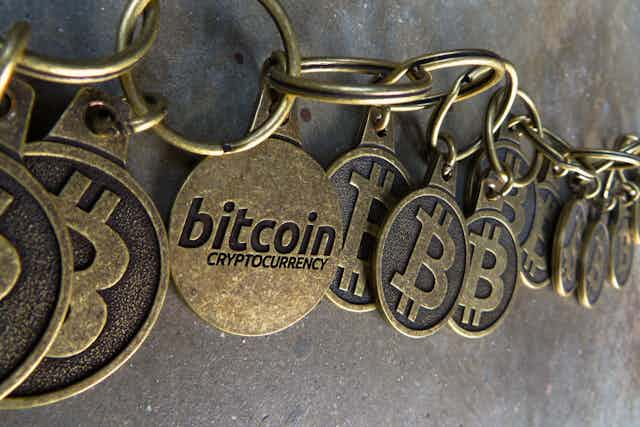Most people who have heard the term think that the “blockchain” is only something to do with cryptocurrencies such as bitcoin, litecoin, doguecoin and others. It’s the technology that underpins digital currencies and ensures that all transactions are properly conducted and recorded. But what is stored on the blockchain need not be just a currency unit – it can be put to all manner of other interesting uses.
The blockchain is defined as “a system that’s secure without a higher authority, distributed across many strangers’ computers, yet tamper-proof, and promises a mechanism for trust mediated directly between individuals”. Essentially, by providing a distributed means to guarantee and verify transactions, the blockchain offers the ultimate opportunity to cut out the middleman.
A key aspect is the programmable smart contract: code stored on the blockchain that automatically executes when certain conditions have been met. In uses that involve a financial transaction, it makes sense to use bitcoin or some other digital currency for the same reason – by doing so, transactions can be automated and guaranteed without recourse to third parties, such as a bank.
Not all uses involve payments. For example, Kim Jackson and Zach LeBeau were married on the blockchain in November. Is a blockchain marriage legally binding? Well, some parts of it would fall within contract law, but it’s a first symbolic step.
Many major companies are looking to the blockchain as a way to simplify and strengthen supply chains, where the blockchain could record each step a product has taken. For example, it could be used to guarantee the origin of foods.
In other cases, the blockchain can be used for peer-to-peer exchange or sale. Imagine you have an electric car. When your charger is unused, you can rent it out to other car owners, paid in bitcoins via a blockchain smart contract.
Another use is automated security, using code embedded on the blockchain to trigger granting or denying access depending on the requester. This way security is assured, as no third parties are involve and no one holds the “keys”: the lock has become one with the key, and assurance lies in the distributed trust of a shared, anonymous network.
One firm supplying this is Slock. The owner can set a deposit amount and a price for renting a property, which the user pays through a blockchain transaction (not even Slock is a middleman), which permits the user to open and close the smart lock through their smartphone. It’s a lock activated by money, without any need for third-party authority. And it’s not just start-ups such as Slock that are taking notice – bigger players, including IBM, are onto it too.
Decentralising everything
A radically different application comes from Bitnation, a project aimed at using blockchain to decentralise governance. Bitnation is offering victims of the refugee crisis an emergency digital ID and bitcoin-based credit card which can be used to receive funds from family members or friends without bank accounts.
With this it is possible for an individual to prove their existence and identity through family relations cryptographically, recorded on the blockchain like a distributed public ledger. This acts as a sort of international notary public. Bitnation works by generating a QR code – a barcode – which can be used with a cellphone to apply for a bitcoin credit card which can be used throughout Europe and the UK without a bank account.

Blockchain automation
Australian software firm Edgelogic offers a glimpse of how blockchain technology could be used at home, a bridge between digital payments and the Internet of Things. For example, a sensor could report to the blockchain when it detects damp, an alert which triggers a set of instructions that transfers cash for repairs from an insurer to a claimant’s account, even before the person knows anything is wrong.
A digital crypto-currency has just launched that is generated by human movement. Bitwalking dollars can be earned simply by walking, unlike other digital currencies such as bitcoins that require “mining” though using computers to solve cryptographic problems. With Bitwalking, a phone app counts and verifies users’ steps and walkers earning approximately BW$1 for every 10,000 steps (about five miles). These can be spent in an online store, or traded for cash.
While some ideas may seem like solutions looking for a problem, others are more closely tied to real needs. They redefine what use the blockchain could be put to – eliminating the need for banks, or even for aspects of government. It’s clear that the blockchain has expanded beyond bitcoin and cryptocurrencies – but as with all disruptive technologies, in which direction it will be taken remains to be seen.

